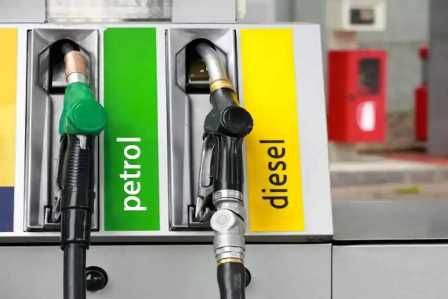
Fuel price cuts bigger than expected
By: Jason Woosey - IOL
Petrol and diesel prices are set to come down from Wednesday, June 5, according to a statement released by the Department of Mineral Resources and Energy (DMRE).
From midnight the price of both grades of petrol will drop by R1.24 per litre while the cost of diesel falls by between R1.08 (50ppm) and R1.18 (500ppm).
What this means at the pumps is that 95 Unleaded will now cost you R23.46 at the coast and R24.25 in the inland regions where 93 Unleaded petrol will retail for R23.91.
A 30 litre tank of petrol, assuming you drive a smaller car, will now be R37.20 cheaper than it was last month, while a 50 litre refuel in a medium vehicle will save you R62.
The wholesale price of 50ppm diesel will now be set at R20.40 at the coast and R21.16 inland, keeping in mind that the unregulated retail prices will be more than R2 higher.
But the savings are substantial with a 70 litre refuel in a bakkie or larger SUV costing R75.60 less than in May.
Even lower fuel prices in July?
Although it’s too early to accurately predict July’s fuel prices, a particularly good sign is that international oil prices have been trading significantly lower in the first week of this month, with Brent Crude listed at $78 (R1,459) at the time of writing on June 4. However for a significant over-recovery to develop the rand would need to remain stable and that would ultimately hinge on the outcome of the government coalition talks this week.
June’s fuel price cuts come largely as a result of lower international oil prices during May, which led to an over-recovery of 76 cents for petrol. The stronger rand made a smaller contribution of 30 cents to the more positive fuel price equation, while a reduced Slate Levy contributed a further 18 cents, the latter leading to bigger-than-expected decreases across the board.
While June’s lower petrol and diesel prices will certainly be welcomed by motorists and commuters, further relief will be needed to bring household costs down to what they were in January, when a litre of 95 Unleaded petrol cost R21.77 at the coast and R22.49 in Gauteng. By May petrol had risen by almost R3, and diesel by R1.45.
The Automobile Association welcomed the latest price decreases for June but urged the government to review the fuel pricing mechanism to determine if there are any factors that can be permanently revised to mitigate against further fuel price shocks in the future.
News Category
- International retailers
- On the move
- Awards and achievements
- Legislation
- Wine and liquor
- Africa
- Going green
- Supplier news
- Research tools
- Retailer trading results
- Supply chain
- Innovation and technology
- Economic factors
- Crime and security
- Store Openings
- Marketing and Promotions
- Social Responsibility
- Brand Press Office
Related Articles

Shoprite increases executive pay as consumers t...

Unions slam SA retailers for ‘profiteering’ as ...

Major Petrol Price Changes on the Horizon

Retailers not cutting food prices fast enough -...


